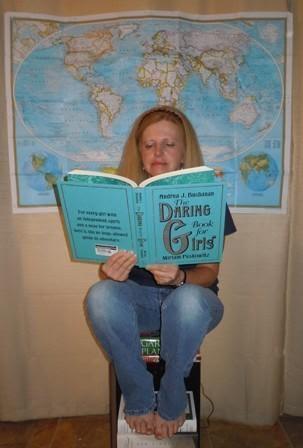Lock The Clock By Cheryl Hughes
Each fall, when time falls back, and it’s dark by five o’clock pm, our friend and business partner, Greg, begins to grieve. He is not afflicted with SAD (seasonal affective disorder), he is frustrated that it’s dark by the time we close our shop, and he isn’t able to work outside. Greg is a doer, and as a doer, he feels robbed when daylight hours are taken from him. The week after the advent of “slow time” (as my grandparents referred to it), Greg begins his lament. “This time last week, we would be locking up,” he says at four o’clock. “This time last week, it would still be light,” he says at five o’clock. “You don’t have time to turn around in the evenings,” he says the following morning. And on it goes until the following January, when Greg says, “I’ll be glad when time changes again.” About February, Greg begins the countdown to the day when time springs forward once more. It’s like the rest of us who count down the days before Christmas. As a matter of fact, Greg seems to get more enjoyment out of Spring-forward Day than those of us who look forward to Christmas, only to be exhausted and let down when it doesn’t meet our expectations. Spring-forward Day always meets Greg’s expectations.
Benjamin Franklin is often given credit for the idea of daylight saving time, because of the essay he penned in 1784. Franklin, who was a US emissary to France at the time, wrote the essay entitled “An Economical Project for Diminishing the Cost of Light.” (livescience.com). It was published in the Journal de Paris. After reading parts of it, it seems to be a tongue-in-cheek commentary on the habit French people of that time had of starting each day around noon then staying up longer into the evenings. Having not taken advantage of daylight hours, Franklin observed, they had to burn more candles to finish their tasks in the evenings, hence wasting energy. Scholars point to that essay as the beginning of the suggestion of DST (daylight saving time). I don’t see it, but hey, what do I know?
There were other suggestions that DST would be a good idea. In 1907, William Willett, an Englishman, published a pamphlet called “The Waste of Daylight.” The idea didn’t really catch on in that country until 1916, when Parliament introduced British Summer Time. The US didn’t change their clocks until the end of WWI. The first DST took place on March 15, 1918, with state and local governments given the right to decide if they wanted to continue the practice. The time change was officially made law with the Uniform Time Act of 1966 (BBC.com).
Since its inception, falling back and springing forward has always had its nay-sayers. My personal favorite is an article from the Louisville Courier-Journal in March of 2018, entitled “Daylight Saving Time is Confusing Cows and Killing People: We must stop the madness.” (courier-journal.com). In recent days, there is a coalition afoot called “Lock the Clock.” The proponents of this group want “fast time,” which they consider real time, normal time, farm time sun time and God’s time, to be the only time, forever and ever Amen. (I wonder if Greg knows about this group. Come to think of it, he’s probably the founder and president.)
There are those law-biding citizens who are taking the legal route to ridding our state, then our nation, of the pesky back and forth of spring and fall time changes. In Kentucky, House Bill 19 (currently in committee) has the support of a couple dozen lawmakers. If the bill passes the Kentucky legislature, “fast time” would be our new normal on the first Sunday of November of this year. It is contingent, however, on the Federal government passing the “Sunshine Protection Act,” sponsored by Senator Marco Rubio of Florida, the federal version of Ky. House Bill 19 (congress.gov>bill>senate-bill).
It’s hard to know if anything will ever be done about this spring and fall back and forth. All I know is when it happens, a lot of us will say, “It’s about time!”



























